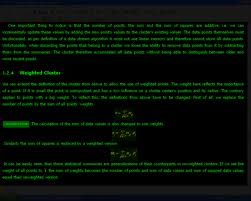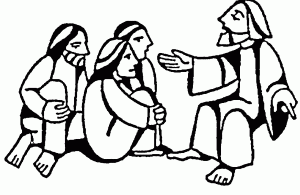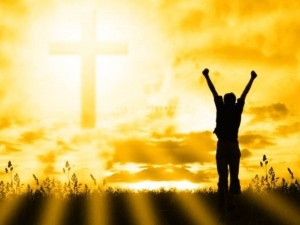====================
This sermon was preached on the Twelfth Sunday after Pentecost, August 11, 2013, at St. Paul’s Episcopal Church, Medina, Ohio, where Fr. Funston is rector.
(Revised Common Lectionary, Pentecost 12 (Proper 14, Year C): Isaiah 1:1,10-20; Psalm 50:1-8,23-24; Hebrews 11:1-3,8-16; and Luke 12:32-40. These lessons can be read at The Lectionary Page.)
====================
 We are used to thinking of the Book of Isaiah as the work of a single prophet, but it is really three books: First Isaiah, comprising chapters 1-39; Second Isaiah, made up of chapters 40-55; and Third Isaiah, chapters 56-66. These three prophets did their work in three different and distinct periods in Jewish history: the late 8th Century BCE; the mid-6th Century BCE, and the late 6th Century BCE, respectively. This is clear from evidence in their writings: their themes vary and each prophet speaks from a different location. First Isaiah is clearly set in pre-exilic Jerusalem; Second Isaiah was obviously written in Babylon; Third Isaiah speaks from post-exilic Jerusalem. Nonetheless, there is a sense of unity in the writings that make up this book. Phrases and themes recur, and there are linkages later and earlier passages. Today’s reading is from First Isaiah and introduces a topic which will be taken up again by Second and Third Isaiah: what constitutes proper worship?
We are used to thinking of the Book of Isaiah as the work of a single prophet, but it is really three books: First Isaiah, comprising chapters 1-39; Second Isaiah, made up of chapters 40-55; and Third Isaiah, chapters 56-66. These three prophets did their work in three different and distinct periods in Jewish history: the late 8th Century BCE; the mid-6th Century BCE, and the late 6th Century BCE, respectively. This is clear from evidence in their writings: their themes vary and each prophet speaks from a different location. First Isaiah is clearly set in pre-exilic Jerusalem; Second Isaiah was obviously written in Babylon; Third Isaiah speaks from post-exilic Jerusalem. Nonetheless, there is a sense of unity in the writings that make up this book. Phrases and themes recur, and there are linkages later and earlier passages. Today’s reading is from First Isaiah and introduces a topic which will be taken up again by Second and Third Isaiah: what constitutes proper worship?
Ritual worship in First Isaiah’s day was centered at the Temple in Jerusalem. Prof. James T. Dennison, Jr., of Northwest Theological Seminary, in an article about today’s reading from Isaiah describes the cultic activity:
At the temple, there were throngs of people. Multitudes trampled the courts of the temple – hustle and bustle, service upon service, activity upon activity. On the Sabbath; at the monthly new moon service; at the appointed feasts – Passover, Pentecost, Yom Kippur, Tabernacles. Why you couldn’t keep the good folks away. And offerings – did they bring offerings! Burnt offerings, peace offerings, grain offerings – why what more could you ask? All that Moses prescribed, they brought. Piety by the bushel; holiness by the herd; sanctity by the sheepfold. And the fellowship – oh, the friends they met and the people they talked to, the news they caught up on and the gossip they passed on. And the motions – why they spread out their hands in prayer. They lifted their arms to the sky – what a pious sight, the smoke of their offerings ascending and the ascension of these holy hands. What ecstasy! What piety! What religiosity! (A Tale of Two Cities: Isaiah and Worship)
“What liturgical hypocrisy!” cries Isaiah. Isaiah condemns this worship as so much theater in the absence of care for the weakest in society; God, he says, rejects liturgical activities devoid of the pursuit of justice and righteousness. The stinging critique of worship that we heard in today’s Old Testament lesson is not an indictment of worship in general. Rather, the prophet tells us that God takes no joy in the pomp and circumstance when it is accompanied by unjust behavior, when in fact it covers up injustice:
When you stretch out your hands, I will hide my eyes from you; even though you make many prayers, I will not listen; your hands are full of blood. Wash yourselves; make yourselves clean; remove the evil of your doings from before my eyes; cease to do evil. (Isa. 1:15-16)
It is a cry his successor, Third Isaiah, will take up two centuries later condemning hollow, hypocritical ritual fasting: the fast that God chooses, he says, is “to loose the bonds of injustice, to undo the thongs of the yoke, to let the oppressed go free, and to break every yoke.” (Isa. 58:6) The worship offered those whose hands are full, metaphorically, with the blood of the oppressed will not be accepted; the blood of animals offered in sacrificial worship will not atone for the injustice in the community. The emptiness of the ritual reminds the Divine Judge of society’s crimes against its weaker and less fortunate members.
Isaiah calls on his listeners, the worshipers of ancient Judah and worshipers in modern America, to hear the word of the Lord, the torah of God: “Learn to do good; seek justice, rescue the oppressed, defend the orphan, plead for the widow.” (Isa. 1:17)
This is precisely what Jesus says in today’s Gospel lesson: “Sell your possessions, and give alms. Make purses for yourselves that do not wear out, an unfailing treasure in heaven, where no thief comes near and no moth destroys. For where your treasure is, there your heart will be also.” (Lk. 12:33-34) And then he gives his famously imprecise warning of the Second Coming: “Be alert, be ready, be dressed for action, because you don’t when it will be.” How does one do this? By doing the things Jesus has already mentioned. As Lutheran pastor John Petty puts it:
If one’s treasure has been kept to one’s self, one’s treasure is always at risk. If one’s treasure has been given to the poor, it is “unfailing.” If your treasure is with yourself, your heart is directed toward yourself. If your treasure has been given to the poor, your heart is with the poor — or, in other words, with God. (Progressive Involvement)
“And why do you worry about clothing? Consider the lilies of the field, how they grow; they neither toil nor spin, yet I tell you, even Solomon in all his glory was not clothed like one of these.” (Matt. 6:28-29) If you have clothed the naked, you are dressed and ready to go. It’s like Jesus said at another time:
I was hungry and you gave me food, I was thirsty and you gave me something to drink, I was a stranger and you welcomed me, I was naked and you gave me clothing, I was sick and you took care of me, I was in prison and you visited me. * * * Just as you did it to one of the least of these who are members of my family, you did it to me. (Matt. 25:35-36,40)
The answer to the “how” question begs the next inquiry . . . when? That the tough one because we are dealing with what has been called “the uncertain certainty of Christ’s return.” Remember, Jesus said no one, including himself, would know when that day would come; like the old television show Candid Camera, it will happen when we least expect it. A ministerial colleague of mine in a more conservative evangelical tradition once commented, “We have focused so much emotional energy on the expectation that we have not done the work to be done before Jesus returns.” It’s just so much theater in the absence of care for the weakest in society. God takes no joy in ritual liturgy or any worship unaccompanied by righteous behavior and justice.
In the late 19th and early 20th Centuries, our own Anglican tradition was divided between those who favored a more ceremonial, ritual style of liturgy, commonly called Anglo-Catholics, and those who favored far less ritual in worship. The latter, generally referred to as Evangelicals or as “the Low Church Party” would have said that liturgy such as we usually celebrate now is “hollow and unsatisfying, ceremonial . . . in place of the life-giving Word.” In an Evangelical Australian publication it was denounced in terms nearly as prophetic as Isaiah’s:
We never read once of Paul, or Peter, or of any of the other apostles having lights and swinging censers and vestments and copes and mitres and chasubles, and elaborate processions, and so forth. * * * Seen in the clear light of the Word of God, [ritual worship] is not only blasphemous, but idolatrous. It is absolutely opposed to Scriptural teaching. (The Signs of the Times, August 27, 1923)
Eventually, as common Prayer Book liturgy makes clear, we Anglicans arrived (as is our wont) at a compromise encompassing many styles of worship and settling into the broad liturgical practices of today. But the concern of Isaiah for ritual worship accompanied by social justice was not lost on the Anglo-Catholics.
At the Second Anglo-Catholic Congress held in London in 1923, the Bishop of Zanzibar, the Right Reverend Frank Weston, closed the meeting with an address entitled Our Present Duty. The last words of Bishop Weston’s address, which could as easily be spoken to 21st Century Americans, are these:
I say to you, and I say it to you with all the earnestness that I have, that if you are prepared to fight for the right of adoring Jesus in his Blessed Sacrament, then you have got to come out from before your Tabernacle and walk, with Christ mystically present in you, out into the streets of this country, and find the same Jesus in the people of your cities and your villages. You cannot claim to worship Jesus in the Tabernacle, if you do not pity Jesus in the slum.
Now mark that — this is the Gospel truth. If you are prepared to say that the [Christian] is at perfect liberty to rake in all the money he can get no matter what the wages are that are paid, no matter what the conditions are under which people work; if you say that the [Christian] has a right to hold his peace while his fellow citizens are living in hovels below the levels of the streets, this I say to you, that you do not yet know the Lord Jesus in his Sacrament. You have begun with the Christ of Bethlehem, you have gone on to know something of the Christ of Calvary — but the Christ of the Sacrament, not yet. Oh brethren! if only you listen to-night your movement is going to sweep [this nation]. If you listen. I am not talking economics, I do not understand them. I am not talking politics, I do not understand them. I am talking the Gospel, and I say to you this: If you are Christians then your Jesus is one and the same: Jesus on the Throne of his glory, Jesus in the Blessed Sacrament, Jesus received into your hearts in Communion, Jesus with you mystically as you pray, and Jesus enthroned in the hearts and bodies of his brothers and sisters up and down this country. And it is folly — it is madness — to suppose that you can worship Jesus in the Sacraments and Jesus on the Throne of glory, when you are sweating him in the souls and bodies of his children. It cannot be done.
There then, as I conceive it, is your present duty; and I beg you, brethren, as you love the Lord Jesus, consider that it is at least possible that this is the new light that the Congress was to bring to us. You have got your Mass, you have got your Altar, you have begun to get your Tabernacle. Now go out into the highways and hedges where not even the Bishops will try to hinder you. Go out and look for Jesus in the ragged, in the naked, in the oppressed and sweated, in those who have lost hope, in those who are struggling to make good. Look for Jesus. And when you see him, gird yourselves with his towel and try to wash their feet.
(Our Present Duty, slightly amended. Bishop Weston said “Anglo-Catholic” rather than “Christian” and “England” rather than “the nation” – but with those simple amendments this statement applies as well to church members in the contemporary United States as it did to Anglo-Catholics in the England of a century ago.)
Another Anglican a century and a half earlier summarized the Christian duty somewhat more succinctly. Although it is disputed that John Wesley ever actually uttered what is now known as “John Wesley’s Rule,” it certainly accords with his preaching, with today’s lesson from Isaiah’s prophecy, and with the Gospel:
“Do all the good you can,
by all the means you can,
in all the ways you can,
in all the places you can,
at all the times you can,
to all the people you can,
as long as ever you can.”
This understanding and appreciation for the meaning behind Isaiah’s prophecy, his condemnation of worship not connected to a ministry of social justice has been a part of our Anglican ethos from the very beginning. Shortly after the Church of England separated from Rome, when Archbishop Thomas Cranmer and his collaborators produced the first English Book of Common Prayer in 1549, they included at the end of the rite of Holy Communion a closing prayer which included this petition:
We therfore most humbly beseche thee, O heavenly father, so to assist us with thy grace, that we may continue in that holy felowship, and doe all suche good woorkes, as thou hast prepared for us to walke in.
That prayer, or one very much like it, has been used to end Anglican services of the Holy Eucharist for nearly 500 years. In our current American Prayer Book we have a descendent of that prayer in contemporary English which includes the modern version of that petition:
And now, Father, send us out to do the work you have given us to do, to love and serve you as faithful witnesses of Christ our Lord.
Floating around the internet recently, being “tweeted” on Twitter and “shared” on Facebook, is a “meme” which also echoes Isaiah. A “meme” is a photograph over which has been superimposed, using Photoshop or some other graphics application, a caption. (Often the caption may seem to have nothing to with the picture.) This particular “meme” shows a man sitting on the floor of a work bay in an auto repair facility. The caption reads: “Sitting in church for an hour on Sunday morning doesn’t make you a Christian any more than sitting in a garage makes you a car.” A bit snarky, perhaps, but the message is clearly the same as First Isaiah’s.
Whether that prophet eight centuries before Christ, or Third Isaiah two centuries later, or Christ himself in the First Century, Cranmer in the 16th, Wesley in the 18th, the Evangelicals or Bishop Weston in the early 20th Century, or a snarky Facebook “meme” in the 21st, the message is the same: worship devoid of social justice and righteousness is unacceptable!
“Sell your possessions, and give alms.” (Luke 12:33)
“Sell your possessions, and give alms.” (Luke 12:33)
“Wash yourselves; make yourselves clean. * * * Learn to do good; seek justice, rescue the oppressed, defend the orphan, plead for the widow. ” (Isaiah 1:16-17)
“Be dressed for action and have your lamps lit.” (Luke 12:35)
Amen.
====================
A request to my readers: I’m trying to build the readership of this blog and I’d very much appreciate your help in doing so. If you find something here that is of value, please share it with others. If you are on Facebook, “like” the posts on your page so others can see them. If you are following me on Twitter, please “retweet” the notices of these meditations. If you have a blog of your own, please include mine in your links (a favor I will gladly reciprocate). Many thanks!
====================
Father Funston is the rector of St. Paul’s Episcopal Church, Medina, Ohio.
 The Definition of Chalcedon affirms, in part:
The Definition of Chalcedon affirms, in part: What is fear of death but fear of the unknown? The fear of death and the unknown brings anxiety, despair, and a frantic search for meaning. The fear of death and the unknown distracts us and makes us afraid to truly live. We end up fearing both death and life; we end up not attending to those things which are most important.
What is fear of death but fear of the unknown? The fear of death and the unknown brings anxiety, despair, and a frantic search for meaning. The fear of death and the unknown distracts us and makes us afraid to truly live. We end up fearing both death and life; we end up not attending to those things which are most important.

 I sometimes wonder to what extent Paul, as an educated Jewish citizen of a Greek-speaking empire, was schooled in the classical Greek philosophers. Had he read Plato’s Republic? Was he aware of the conversation portrayed in Book VII between Socrates and Glaucon in which the allegory of the cave is laid out?
I sometimes wonder to what extent Paul, as an educated Jewish citizen of a Greek-speaking empire, was schooled in the classical Greek philosophers. Had he read Plato’s Republic? Was he aware of the conversation portrayed in Book VII between Socrates and Glaucon in which the allegory of the cave is laid out? Finish this verse: “The Lord helps those . . . .”
Finish this verse: “The Lord helps those . . . .” We are used to thinking of the Book of Isaiah as the work of a single prophet, but it is really three books: First Isaiah, comprising chapters 1-39; Second Isaiah, made up of chapters 40-55; and Third Isaiah, chapters 56-66. These three prophets did their work in three different and distinct periods in Jewish history: the late 8th Century BCE; the mid-6th Century BCE, and the late 6th Century BCE, respectively. This is clear from evidence in their writings: their themes vary and each prophet speaks from a different location. First Isaiah is clearly set in pre-exilic Jerusalem; Second Isaiah was obviously written in Babylon; Third Isaiah speaks from post-exilic Jerusalem. Nonetheless, there is a sense of unity in the writings that make up this book. Phrases and themes recur, and there are linkages later and earlier passages. Today’s reading is from First Isaiah and introduces a topic which will be taken up again by Second and Third Isaiah: what constitutes proper worship?
We are used to thinking of the Book of Isaiah as the work of a single prophet, but it is really three books: First Isaiah, comprising chapters 1-39; Second Isaiah, made up of chapters 40-55; and Third Isaiah, chapters 56-66. These three prophets did their work in three different and distinct periods in Jewish history: the late 8th Century BCE; the mid-6th Century BCE, and the late 6th Century BCE, respectively. This is clear from evidence in their writings: their themes vary and each prophet speaks from a different location. First Isaiah is clearly set in pre-exilic Jerusalem; Second Isaiah was obviously written in Babylon; Third Isaiah speaks from post-exilic Jerusalem. Nonetheless, there is a sense of unity in the writings that make up this book. Phrases and themes recur, and there are linkages later and earlier passages. Today’s reading is from First Isaiah and introduces a topic which will be taken up again by Second and Third Isaiah: what constitutes proper worship? As I read this verse from the Letter to the Hebrews, continuing education in the faith (an “adult Christian formation” program) has apparently been an issue in the church for quite a while. There is certainly a crisis of lifelong learning – or the lack of it – in the church today!
As I read this verse from the Letter to the Hebrews, continuing education in the faith (an “adult Christian formation” program) has apparently been an issue in the church for quite a while. There is certainly a crisis of lifelong learning – or the lack of it – in the church today! I have an inch-long scar on the palm of my left hand; if I look closely, I can still see the pin-prick scars on either side of it which represent where the sutures that closed the wound were placed. The scar is just below my left pinky finger, which doesn’t work quite so well as my right pinky because underneath the scar the tendon was cut and had to be reconstructed. I’ve had this scar and this less-than-functional finger since I was not quite nine years old. It is a reminder of the need for boldness.
I have an inch-long scar on the palm of my left hand; if I look closely, I can still see the pin-prick scars on either side of it which represent where the sutures that closed the wound were placed. The scar is just below my left pinky finger, which doesn’t work quite so well as my right pinky because underneath the scar the tendon was cut and had to be reconstructed. I’ve had this scar and this less-than-functional finger since I was not quite nine years old. It is a reminder of the need for boldness.  Some years ago, my wife and I were members of a congregation in Southern California where the assistant priest was a military chaplain originally from Georgia. He was normally rather soft-spoken, but when he would introduce the traditional (Jacobean English) version of the Lord’s Prayer using the words from The Book of Common Prayer he would emphasize one word: “And now, as our Savior Christ has taught us, we are BO-WULD to say . . . .”
Some years ago, my wife and I were members of a congregation in Southern California where the assistant priest was a military chaplain originally from Georgia. He was normally rather soft-spoken, but when he would introduce the traditional (Jacobean English) version of the Lord’s Prayer using the words from The Book of Common Prayer he would emphasize one word: “And now, as our Savior Christ has taught us, we are BO-WULD to say . . . .” 

